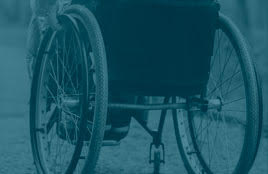Sadly, as a trial lawyer, cases that I handle include cases involving the death of a newborn as a result of negligence. Many of these cases involve negligence in the delivery room. Imagine the excitement the expecting couple feels as the labor and delivery process unfurls, only to be shattered when they learn that the child they have been expecting for nine months won’t be with them. No one can dispute that a parent’s pain in this situation is raw and devastating. But can the parents be compensated for their anguish, their grief?
In any personal injury case, compensating someone for physical or emotional harm is effectively a social policy derived from the constitution that each individual has a right to live free from harms and losses caused by another’s carelessness. When someone is negligently harmed, the quality of their life has been diminished and we as a society believe that the loss of value in their lives should be compensated. Or, do we?
When it comes to the negligently-caused death of a newborn, the answer to this question depends on which state you live in. If you live in New Jersey, for example, the anguish experienced by the parents is not compensable. If you live in the state of Delaware, the parent’s grief is compensable under the law of that state. In fact, in Delaware, grief damages can be awarded to a parent when a child dies at any age.
What about Pennsylvania? Recently (within the last two years), Pennsylvania has begun compensating a parent for emotional distress suffered in the delivery room when the outcome is not what the parent expected and is due to the negligence of others. In the case of Toney v. Chester County Hospital, et al., 36 A.3d 83 (2011) the pregnant mom had an ultrasound five months into the pregnancy which was reported as normal. However, when the baby was born, it did not have any hands or feet. The shock of this experience caused her to suffer depression, anxiety and hysterical attacks. The mom sued to recover compensation for her emotional distress, claiming that if the ultrasound had been reported properly, she could have braced herself and would not have been shocked when the baby was born.
The trial court dismissed the case on the grounds that Pennsylvania did not recognize compensating a mom under these circumstances. The Superior Court reversed and said there should be compensation for the mom.
The case went to the Pennsylvania Supreme Court where at the time seven Justices heard the appeal. Three Justices agreed with the Superior Court and three did not. One Justice abstained. When the Supreme Court is tied, the Superior Court decision stands.
As a trial lawyer, I believe that a parent should be compensated for emotional distress when a child dies as a result of someone else’s negligence. The Toney decision is a first step in the right direction.






